
Eagles Live is the first live album by the American rock band Eagles, a two-LP set released on November 7, 1980. Although the Eagles were already in the process of breaking up, the band owed Elektra/Asylum Records one more album and fulfilled that contractual obligation with a release of performances from the Hotel California and The Long Run tours.
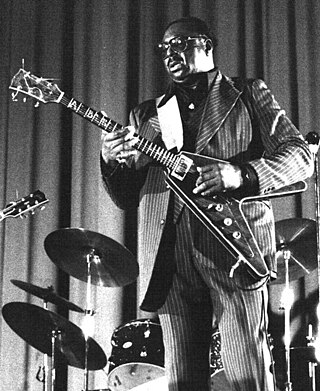
Albert Nelson, known by his stage name Albert King, was an American guitarist and singer who is often regarded as one of the greatest and most influential blues guitarists of all time. He is perhaps best known for his popular and influential album Born Under a Bad Sign (1967) and its title track. He, B.B. King, and Freddie King, all unrelated, were known as the "Kings of the Blues". The left-handed King was known for his "deep, dramatic sound that was widely imitated by both blues and rock guitarists."
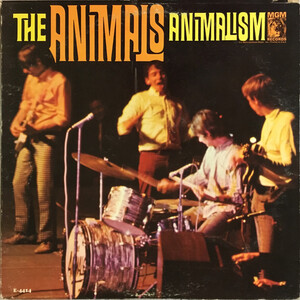
Animalism is the fifth American album by the Animals, released in November 1966. The album includes the band's usual repertoire of blues and R&B covers, while Frank Zappa contributed a song and played bass on two tracks. It was the last album recorded by the original incarnation of the Animals prior to their disbandment, after which singer Eric Burdon would assemble a mostly new lineup under the name "Eric Burdon and the Animals". This new version of the group was already touring when Animalism released.

William Frank Szymczyk is an American music producer and recording engineer best known for working with rock and blues musicians, most notably the Eagles in the 1970s. He produced many top albums and singles of the 1970s, though–aside from continuing to work with Joe Walsh–he retired from the music business in 1990. He re-emerged in the late 2000s, taking on select projects including the 2007 Eagles album Long Road Out of Eden and the 2008 eponymous debut of Brian Vander Ark.

Live at the Regal is a 1965 live album by American blues guitarist and singer B.B. King. It was recorded on November 21, 1964, at the Regal Theater in Chicago. The album is widely heralded as one of the greatest blues albums ever recorded and was ranked at number 141 in Rolling Stone's 2003 edition of the 500 Greatest Albums of All Time list, before dropping to number 299 in a 2020 revision. In 2005, Live at the Regal was selected for permanent preservation in the National Recording Registry at the Library of Congress in the United States.
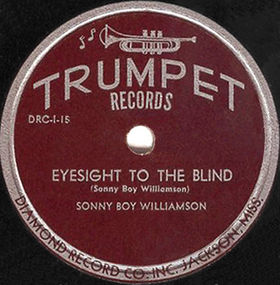
"Eyesight to the Blind" is a 12-bar blues song written and recorded in 1951 by Sonny Boy Williamson II. He also recorded the related songs "Born Blind", "Unseeing Eye", "Don't Lose Your Eye", and "Unseen Eye" during his career. The Larks, an American rhythm and blues group, recorded the song, which reached number five on the R&B charts in 1951. Several musicians subsequently recorded it in a variety of styles. The Who adapted Williamson's song for their rock opera Tommy.

Blues Jam in Chicago is a studio recording by the British rock band Fleetwood Mac, originally released in two single-LP volumes by Blue Horizon in December 1969. It was the result of a recording session in early 1969 at Chess Records in Chicago with Fleetwood Mac, then a young British blues band, and a number of famous Chicago blues artists from whom they drew inspiration. The album has also been released, with slightly different track listings, under the titles Blues Jam at Chess Volumes One and Two and Fleetwood Mac in Chicago, the latter by Sire Records in 1976.

Let the Good Times Roll: The Music of Louis Jordan is the thirty seventh studio album by B. B. King, released in 1999. It is a tribute album to jazz saxophonist and singer Louis Jordan, and is made up entirely of covers of songs written or performed by Jordan. The album was released in 1999 on MCA Records.
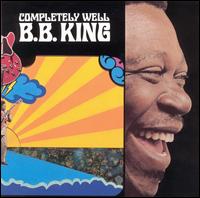
Completely Well, released in 1969, is a studio album by the blues guitarist B. B. King. It is notable for the inclusion of "The Thrill Is Gone", which became a hit on both the R&B/soul and pop charts and which earned him a Grammy Award for Best Male R&B Vocal Performance in 1970.
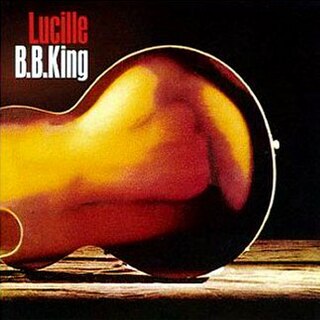
Lucille is the fifteenth album by blues artist B. B. King. It is named for his famous succession of Gibson guitars, currently the Signature ES-355.

Indianola Mississippi Seeds is B. B. King's eighteenth studio album. It was released in October 1970 on ABC Records on LP and May 1989 on MCA Records on CD. On this album B. B. King mixed elements of blues and rock music. Producer Bill Szymczyk decided to follow up on the success of the hit "The Thrill Is Gone" by matching King with a musical all-star cast. The result was one of King's most critically acclaimed albums and one of the most highly regarded blues crossover albums of all time.

Live in Cook County Jail is a 1971 live album by American blues musician B.B. King, recorded on September 10, 1970, in Cook County Jail in Chicago. Agreeing to a request by jail warden Winston Moore, King and his band performed for an audience of 2,117 prisoners, most of whom were young black men. King's set list consisted mostly of slow blues songs, which had been hits earlier in his career. When King told ABC Records about the upcoming performance, he was advised to bring along press and recording equipment.

Guess Who is a studio album by B. B. King. It was released in 1972 by ABC Records.

B.B. King in London is a studio album by B.B. King, recorded in London in 1971. He is accompanied by US session musicians and various British rock- and R&B musicians, including Ringo Starr, Alexis Korner and Gary Wright, as well as members of Spooky Tooth and Humble Pie, Greg Ridley, Steve Marriott, and Jerry Shirley.

Blues on the Bayou is the thirty sixth studio album by B.B. King, released in 1998.

Blue Matter is the third album by the band Savoy Brown. Teaming up once again with producer Mike Vernon, it finds them experimenting even more within the blues framework. Several tracks feature piano as well as trombone.

L.A. Midnight is the twentieth studio electric blues album by B.B. King released in 1972. It features two extended guitar jams with fellow guitarists Jesse Ed Davis and Joe Walsh. It also features Taj Mahal on harmonica and guitar.. "Can't You Hear Me Talking To You" also features Davis on guitar.

Fathers and Sons is the seventh studio album by the American blues musician Muddy Waters, released as a double LP by Chess Records in August 1969.

Endless Boogie is a studio album by American blues musician John Lee Hooker, released in 1971 through ABC Records. Produced by Bill Szymczyk and Ed Michel, the double album was recorded at Wally Heider Recording with session musicians such as Jesse Ed Davis, Carl Radle, Steve Miller, Gino Skaggs and Mark Naftalin.

Blues Is King is a live album by blues musician, B.B. King. It was recorded in Chicago in 1966 and released by the BluesWay label in 1967.



















